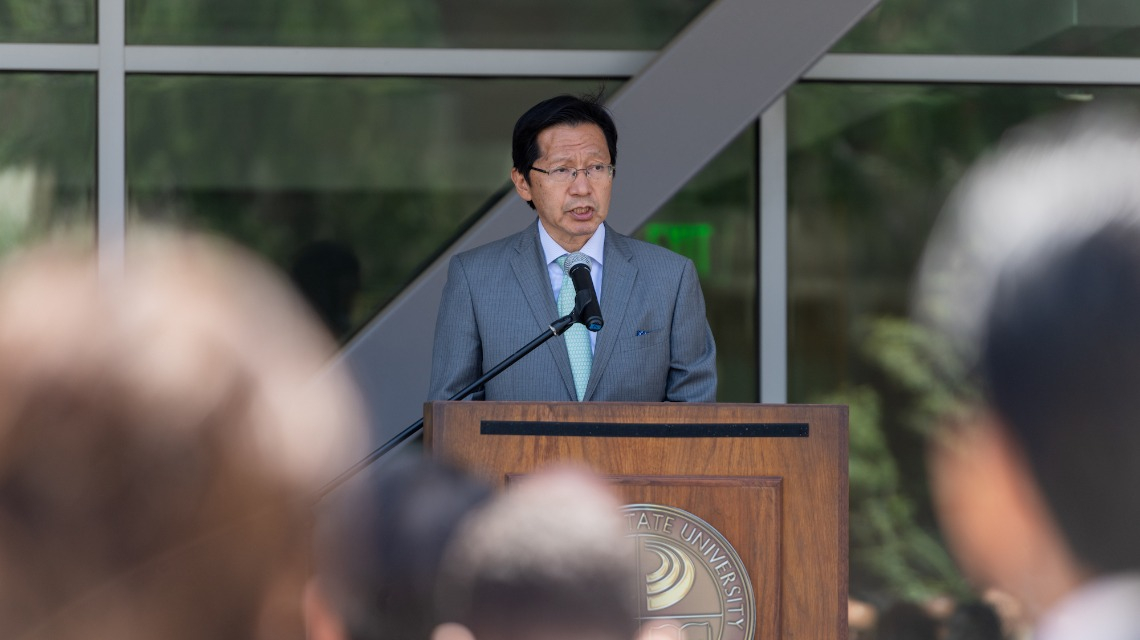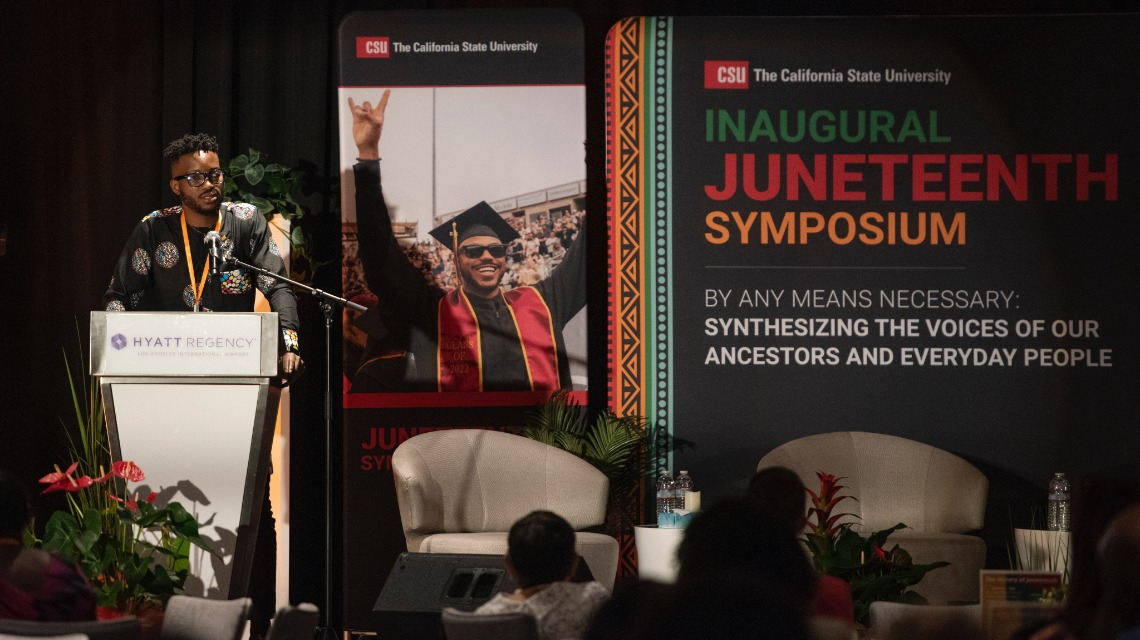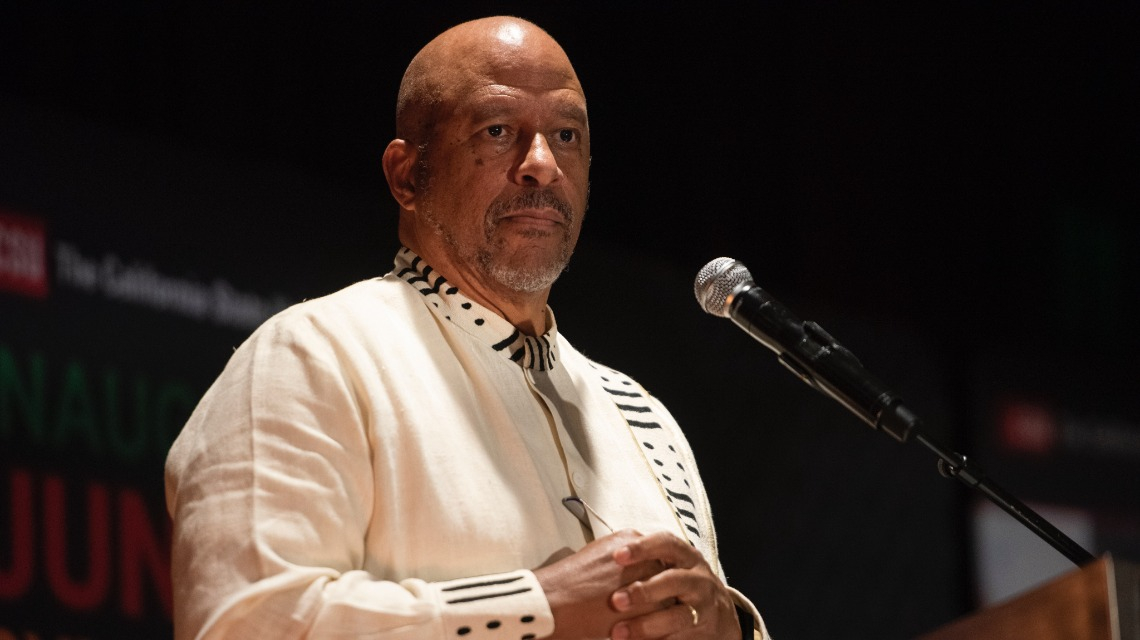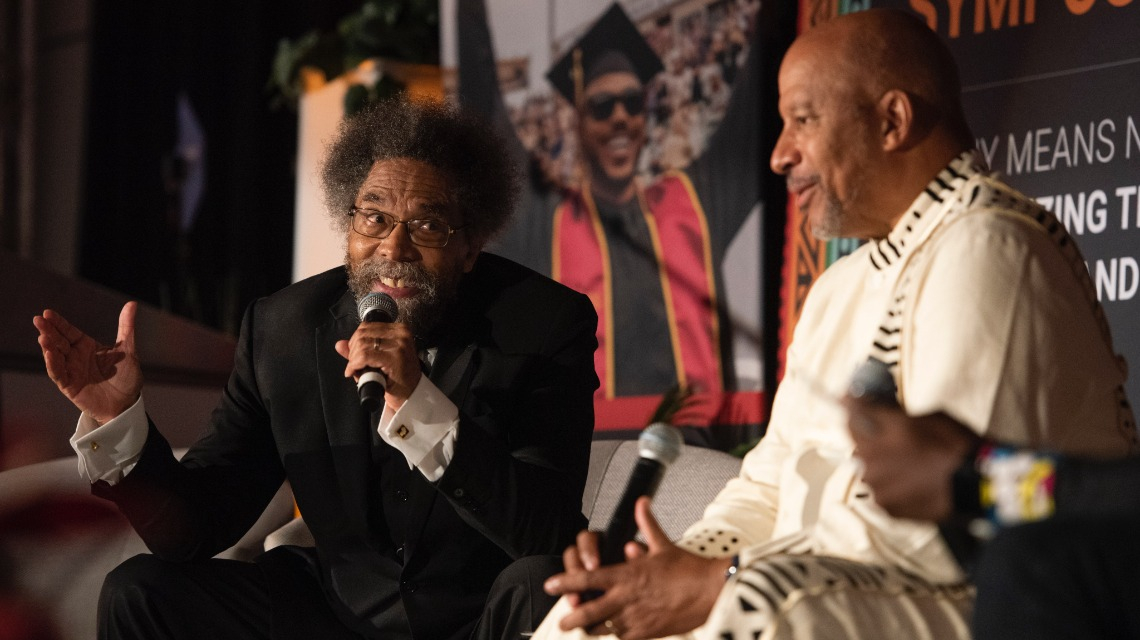African American
-
Archive

Rafu Shimpo: Muto Details Japan, African American Collaboration
Consul General Akira Muto at the CSUDH Japan Jobs Training Launch Source: Rafu Shimpo BEVERLY HILLS – Consul General of Japan…
-
Archive

Press-Telegram: Experts, Scholars Talk Juneteenth, Societal Change During Groundbreaking CSU Symposium
CSUDH ASI President Obioha Ogbonna Source: Long Beach Press-Telegram The two-day event – titled “By Any Means Necessary: Synthesizing the…
-
Archive

EdSource: Cal State Juneteenth Symposium Focuses on Racial Progress Beyond Campus Diversity
CSUDH President Thomas Parham Source: EdSource In Cal State’s first biennial Juneteenth symposium, the nation’s largest public university confronts the need…

